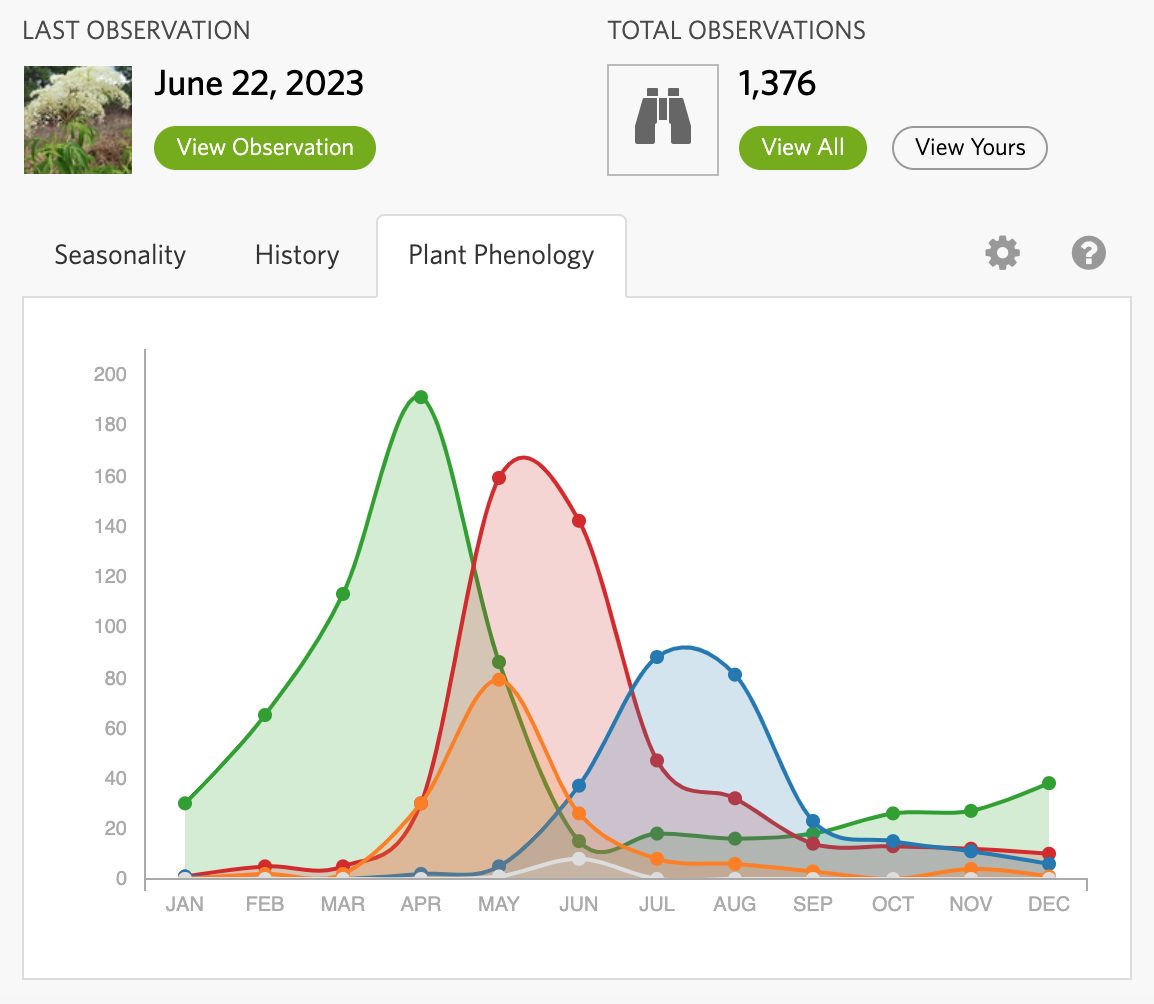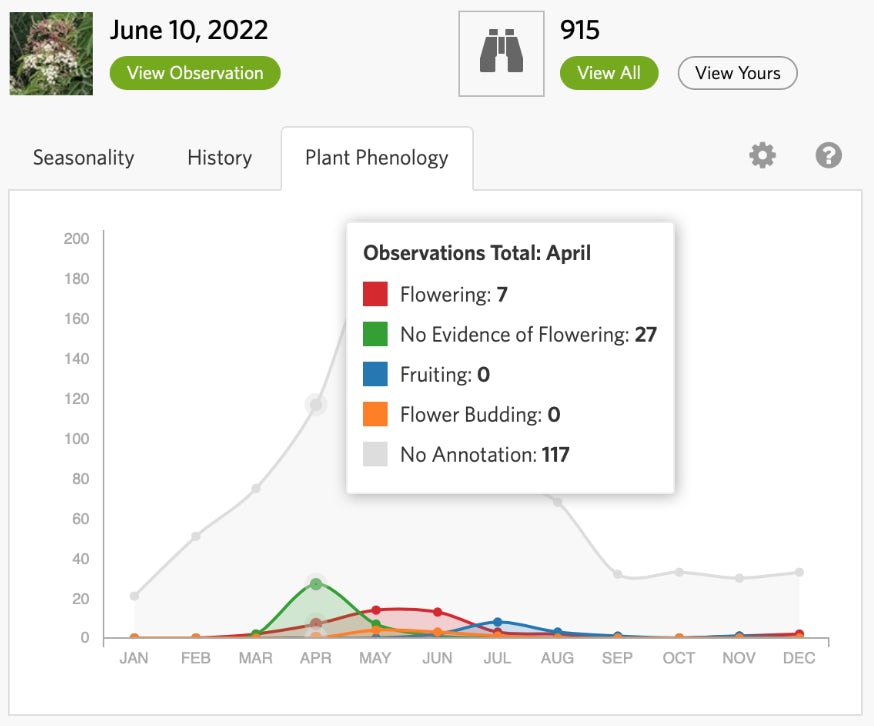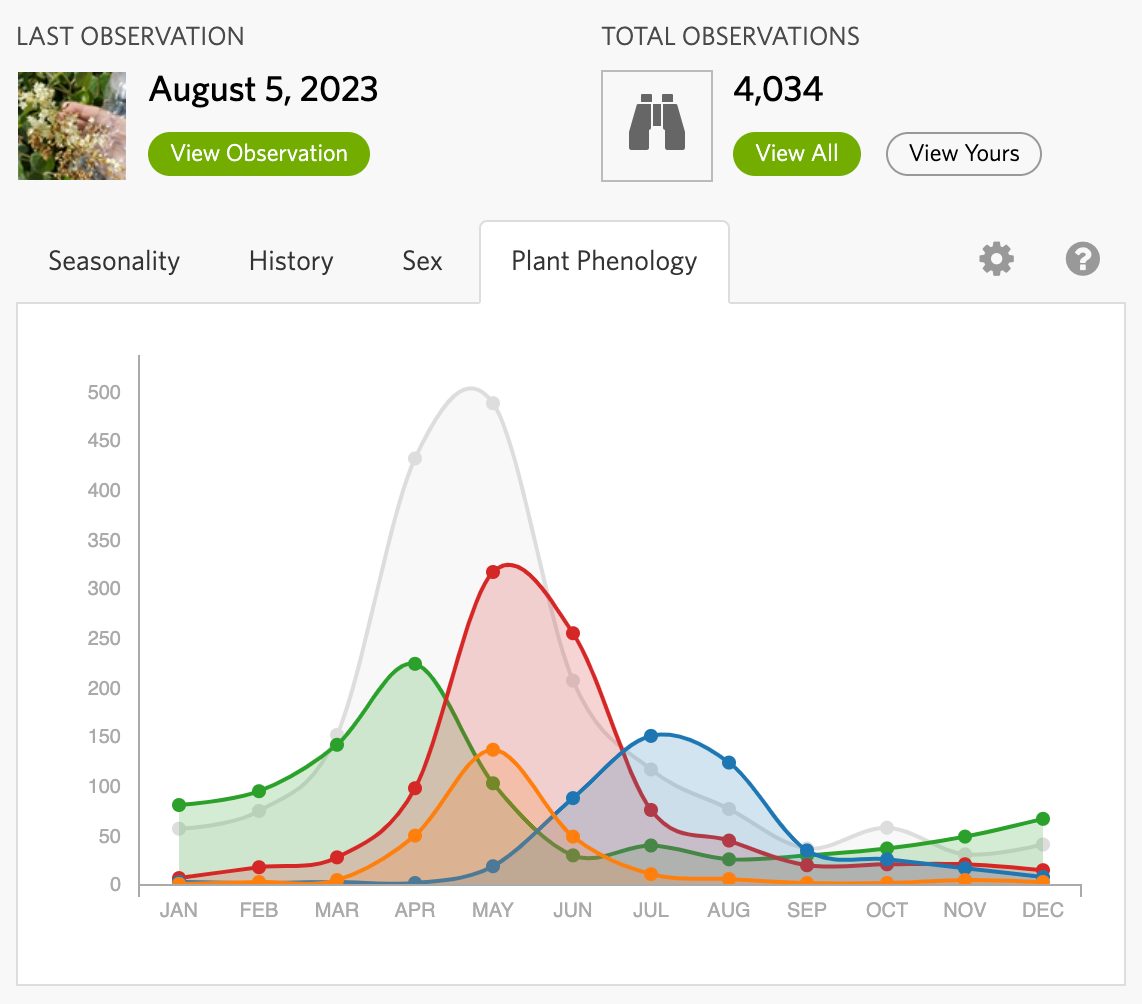Last June, after seeing the Black Elderberry (Sambucus canadensis) blossoms starting to appear on the plants along just about every major road in the area, I started to wonder when the fruit would be ripest, hoping to harvest some when I eventually found a plant on the property (which didn't happen until this year).
I remembered that iNaturalist had a Plant Phenology attribute, where you can document if the plant is Budding, Flowering, Fruiting, or none of the above, and figured that would be a great way to learn when I might find some nice fruit.
What I found was this:
Out of over 900 observations added to iNat in the state of Louisiana, only a few dozen had been annotated at all. This screenshot might actually be after I started to work on a few! While it gave me some general information on timing, it was disappointing until I realized it was also a great opportunity.
In early 2022 I'd resolved to start using iNaturalist every day as part of doing more naturalist work in general. In the depths of winter, when there wasn't much to observe, I started to look into Identifying on the iNat website, where you can "confirm" other users' observations. This new Elderberry problem offered me the opportunity to help hone my identification skills and add more helpful information to the observations.
So over the last year, in a few different bursts, I have gone through every Black Elderberry observation in the state of Louisiana and added Phenology documentation. Now, the same graph looks like this:
 The current area graph for Black Elderberry in Louisiana, showing a much more complete documentation of Phenology
The current area graph for Black Elderberry in Louisiana, showing a much more complete documentation of Phenology
There's a pretty clear picture there now of the progression of the phenology over the course of a year!
Black Elderberry is a good example species as it's still fairly large and noticeable even before it starts flowering, and maintains its woody stems over the winter, so it's often observed even without foliage at all.
Now I'm expanding my efforts to the entire Gulf Coast region — there are 1400+ observations of Sambucus canadensis in the region without a Phenology attribute remaining (the gray line), and I hope to work through those over the rest of the year and continue to flesh out this information for one of my favorite species.
Categories
- acer rubrum
- asimina triloba
- birding
- books
- bulbous bittercress
- cercis canadensis
- christmas bird count
- city nature challenge
- falcate orangetip
- family
- inaturalist
- landry property
- memorials
- native plants
- naturalism
- pokeberry patch
- sambucus canadensis
- sassafras
- the watering can
- transplants
- wallowa county
- zen

